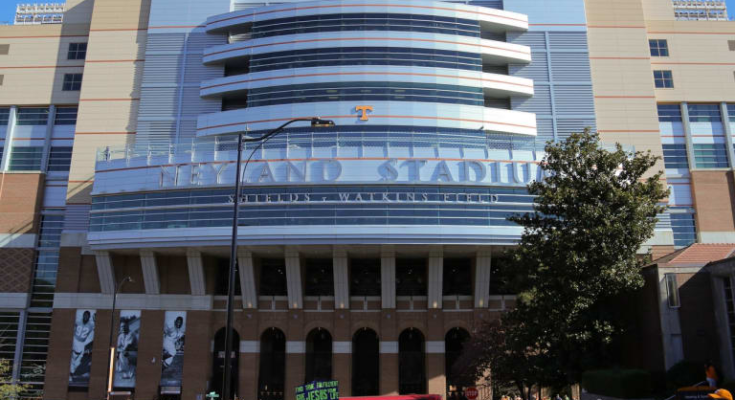After nearly a year of work and right at one million dollars in expenses, Volquest has learned that Tennessee’s investigation into NCAA violations under former head coach Jeremy Pruitt has ended.
As a result of the investigation’s findings and based on the belief of protecting innocent current Vol players, Tennessee is NOT going to self-impose a post-season bowl ban. That is clearly the headline here.
Tennessee feels strongly that the players involved in the alleged violations have transferred elsewhere and many will be in post-season play themselves. For the current players and recruits, putting to bed speculation on a possible bowl ban is a step forward from the cloud surrounding the program for the last year.
Of course, the Vols must win two of their final four games to be bowl eligible.
The University will, however, self-impose other penalties based on the nature of the violations. While the specifics of those penalties aren’t clear, expect for them to be appropriate to the violations. Looking at previous case precedents involving recruiting—where the Tennessee violations occurred—those self-imposed penalties are expected to fall within the scope of recruiting itself. Those will likely include a reduction in scholarships over a period of time, a reduction in official visits and possibly recruiting travel restrictions and maybe others. Tennessee hopes that the sweeping nature of their self-imposed penalties will serve to show just how seriously they have taken their own investigation and it’s findings.
Head coach Josh Heupel said two weeks ago that he expects to sign a full signing class. Currently Tennessee has 70-75 players on scholarship.
It’s important to note that the NCAA has not made a final ruling on Tennessee’s case. In fact, even though they have been involved in the investigation process, the University has neither received a notice of allegation nor is their case scheduled to be heard. It will likely not for some time given how slow the infractions committee works. The reality is that no one is sure what the Infractions Committee is even going to look like in the coming months. Tennessee made it clear from the onset that they were working hand-in-hand with the NCAA in the investigation and are continuing to do so.
Tennessee was hoping for a speedy resolution. However, there’s nothing speedy with the NCAA which has given rise to the ire of institution members across the country.
On Wednesday, the NCAA’s post-season ban of the Oklahoma State basketball program was the result of a case that was five years old. It’s very clear that the NCAA process is less than efficient. The ruling on Wednesday to prevent Oklahoma State from playing in the post-season drew great criticism from many around the country, especially given that current Cowboys players were largely barely teenagers when the alleged violations occurred.
There’s a national movement towards a conversation regarding post-season bans, with the narrative being that student-athletes who weren’t involved in violations shouldn’t be punished. The punishment should be to those responsible in the institution and the coaches. In Tennessee’s case, those parties are no longer on Rocky Top.
Also, the NCAA has made it clear in previous documents that they are in favor of protecting the student- athlete. The NCAA website states — The committee attempts to protect student-athletes who were not involved in the violation.
The National College Players Association makes it clear innocent student athletes should not be caught up in punishment.
Prohibit the punishment of college athletes that have not committed a violation. It’s an injustice to punish college athletes for actions that they did not commit i.e. suspending a team’s post season eligibility for the inappropriate actions of boosters. Such punishments have significant negative impacts on the short college experience for many college athletes.
There’s also proposed legislation with the NCAA Accountability Act which proposes both due process as well as fairness, consistency, and accountability.
The bottom line: Tennessee has wrapped up a year-long investigative process where the NCAA was included from day one, the university is moving forward with some undisclosed self-imposed penalties that they are not allowed to comment on, but a bowl ban is not one of them.
Post-season is still on the table for Josh Heupel’s 2021 Vols.


